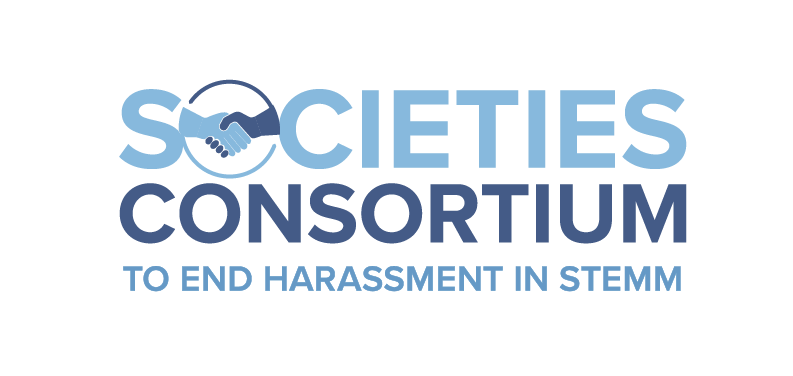Open Letter to Societies Consortium Members: No Room for Bullying in Science – Together We Can Make a Difference
As we collectively ponder the recent resignation of the Director of the Office of Science and Technology Policy, the relevance and critical nature of the work we are doing, together as Members of the Societies Consortium on Sexual Harassment in STEMM and as individual societies, continues to be clear. Also evident is the challenging nature of this work and the long-term need to sustain it. The issues of harassment, bullying and unwelcoming work and educational settings are particularly intransigent when powerful scientists in leadership positions are involved. The allegations made by OSTP staff, as reported in the media, concern deplorable behaviors with broad effect. They offer important lessons that we can apply to our work in the Consortium, even as we particularly focus on sex, gender, and intersecting racial and other identities that have been long targeted for bias in science, as in society. Such bias imposes a heavy burden on women, members of the LGBTQ+ community, and people of color. And it is not only evident in who is targeted for harassment and bullying, but also in definitions of “merit,” in educational and mentoring opportunities and approaches, in the focus of research agendas and funding, in the processes for selecting leaders and honorees, and more. As the individuals serving on the Consortium’s Executive Committee, we are writing to Consortium Members to share our own personal reflections about the connection between bullying and harassment of all kinds and the work of the Consortium.
As a collective leadership endeavor of over 120 academic and professional disciplinary societies in STEMM fields, founded three years ago to advance reimagined fields where all talent can thrive and contribute, our core mission is to fight inequity and advance excellence and integrity. We recognize that doing so is essential for earning public trust and achieving excellence in STEMM fields, whose contributions the world needs now, more than ever. Authentic change in STEMM requires policies that explicitly embrace equity and inclusion for all talent and articulate concrete examples of conduct that is expected to advance that aim, as well as conduct that is harmful and unacceptable. Change requires the hard and long-term work of developing and practicing inclusive norms in the way work is carried out every day, by everyone, regardless of position. It requires strong leadership to recognize and take ethical action when these norms are violated. Effective policies and action recognize the damage caused to the excellence and integrity of the fields when inequity, harassment and, bullying are present—even when the science produced is groundbreaking. Proclamations of intolerance for sexual harassment, whether in policy or in leader statements, do not on their own reflect adequate policies or action. The absence, or a limited number, of complaints may indicate reasonable fear of reprisals affecting the professional relationships and careers of those who speak up—not the absence of a problem.
Work environments where people are abused and excluded are morally reprehensible and threaten STEMM fields’ ability to maximize their contributions to the quality and security of life, health, and the planet. We hope that sharing our reflections, at a time when we are reminded of how much work is still to be done to achieve equitable and inclusive STEMM fields, will re-energize and help sustain our shared commitment to the critical, but difficult, work of the Consortium. The Consortium and its Members are contributing to a better future when we take courageous, collaborative, and individual leadership actions to empower those who are targeted by sexual, gender, and intersecting identity-based harassment and bullying, as well as to diminish the agency of those who engage in this harmful conduct. This work is not easy and will take time — but together, we can make a positive difference.
David Acosta, Clinton Anderson, Marc Beebe, Andrew Black, Felice Levine, Shirley Malcom, Ross McKinney, Monica Plisch, Yvette Seger, Chris Stelzig, Jodi Wesemann, Billy Williams
